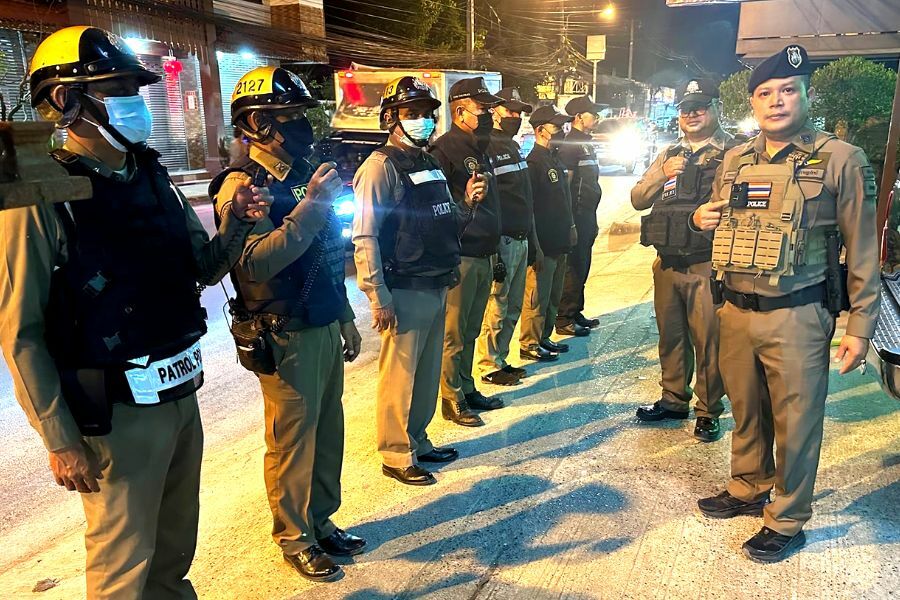RTP unveils strict checkpoint measures, officers must wear bodycam at all times

The Royal Thai Police (RTP) has tightened checkpoint regulations in a bid to stamp out cop corruption amid the Taiwanese actress scandal. RTP officers have been ordered to be courteous and professional and to wear body cameras while working at checkpoints in the future.
The Commissioner of the RTP, Damrongsak Kittipraphat, held an online conference with police officers across the country yesterday to emphasise the necessary rules and procedures to be followed while on duty at checkpoints.
In response to the money extortion scandal exposed by a Taiwanese actress, An Yu-Qing ( 安于晴), also known as Charlene An, Commissioner Damrongsak made a statement regarding police body cameras. To capture all incidents and provide evidence at checkpoints, every officer on duty must wear a body camera at all times.
Damrongsak stressed that video and audio recordings must be immediately transferred to the computer systems at each police station after the end of duty and securely stored for at least 20 days.
He also stated that unannounced checkpoints will no longer be allowed, and officers must obtain permission from their superintendent or higher-ups and log the checkpoint information in the Thai Police Checkpoint Control (TPCC) system before setting up a checkpoint. Additionally, every officer must wear a uniform while on duty, communicate respectfully with the public, and exhibit friendly behaviour.
Officers must clearly understand the laws and explain them to the residents or motorists as well when issuing any charges against them.
Damrongsak also talked about the practices against foreigners in Thailand or foreign tourists. He said police should avoid asking foreigners to show only their original passports. A copy of a passport or a picture of a passport could be legally used as evidence to prove foreigners’ identities.
The commissioner also urged the superintendent or provincial commissioners to randomly investigate checkpoints to ensure that everything is legal according to the law.
If any scandal or wrongdoing is circulated on Thai social media, both leading officers and fellow officers would be punished without exception.
Damrongsak concluded the meeting with a warning that officers would be punished if they are found to be involved in drug trafficking, illegal gambling dens, online gambling websites, sex services, human trafficking, or any other wrongdoings for their benefit.
Latest Thailand News
Follow The Thaiger on Google News:



























